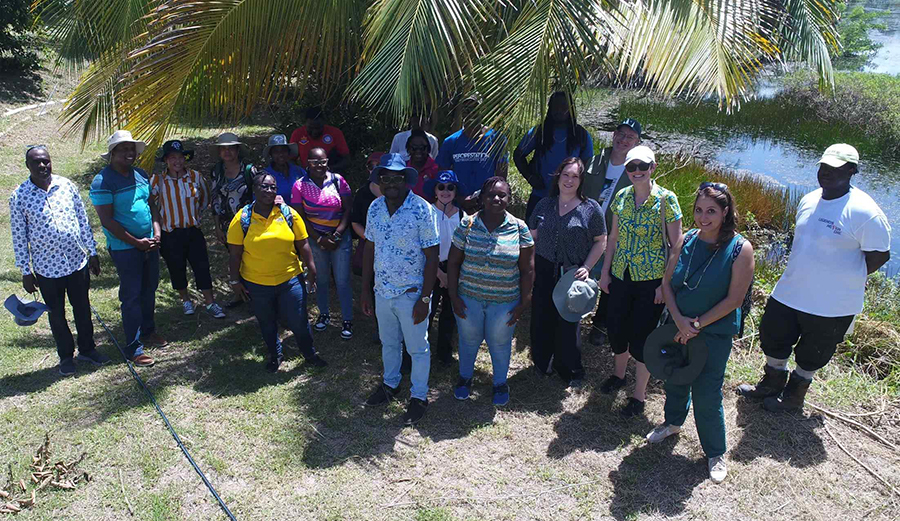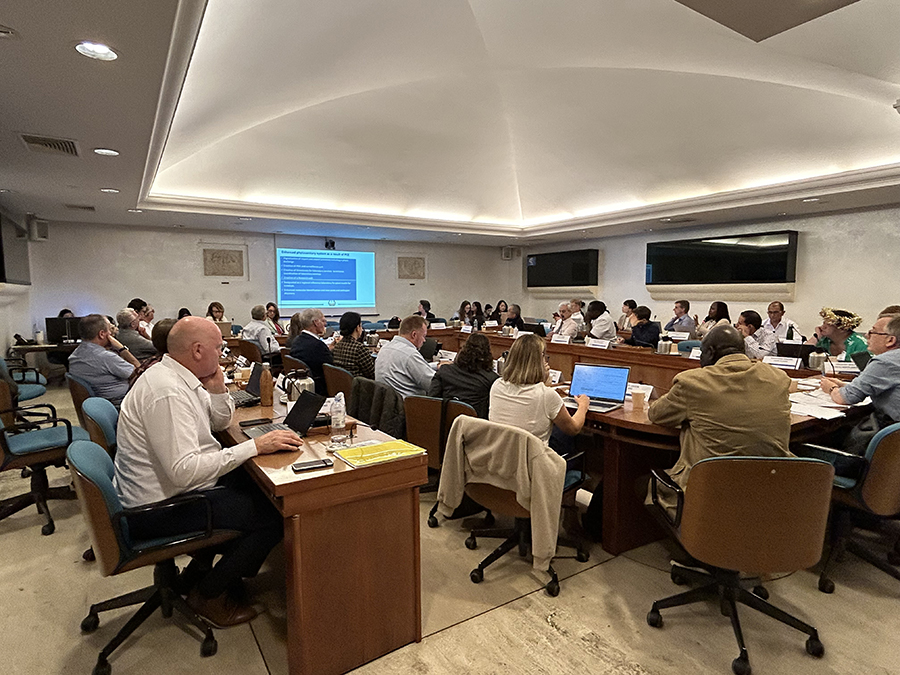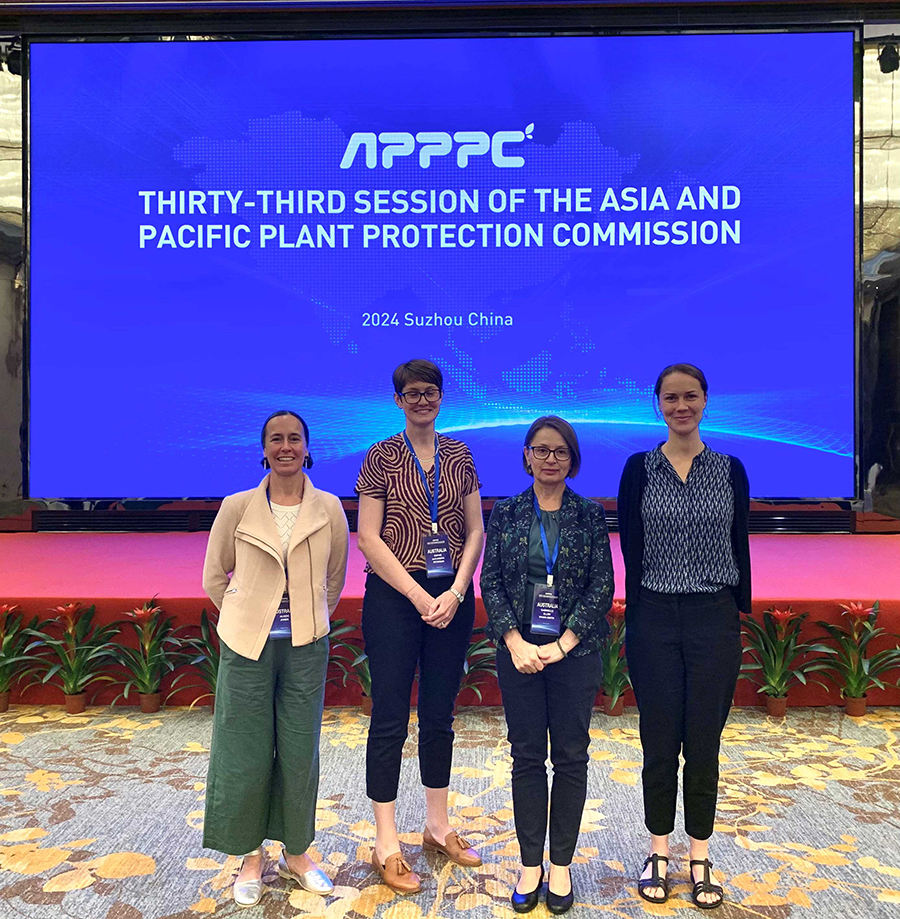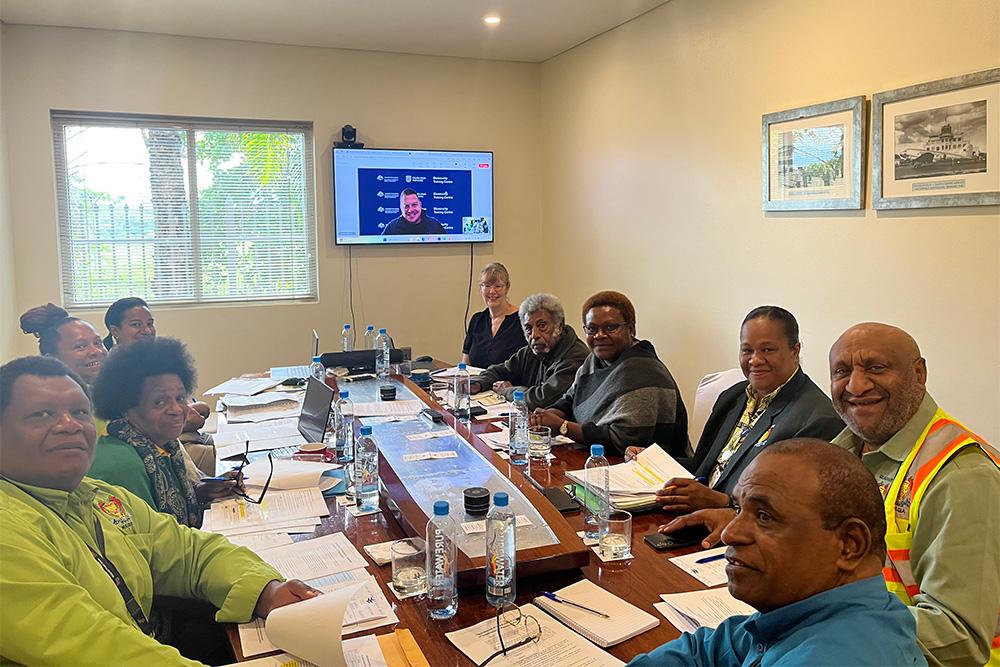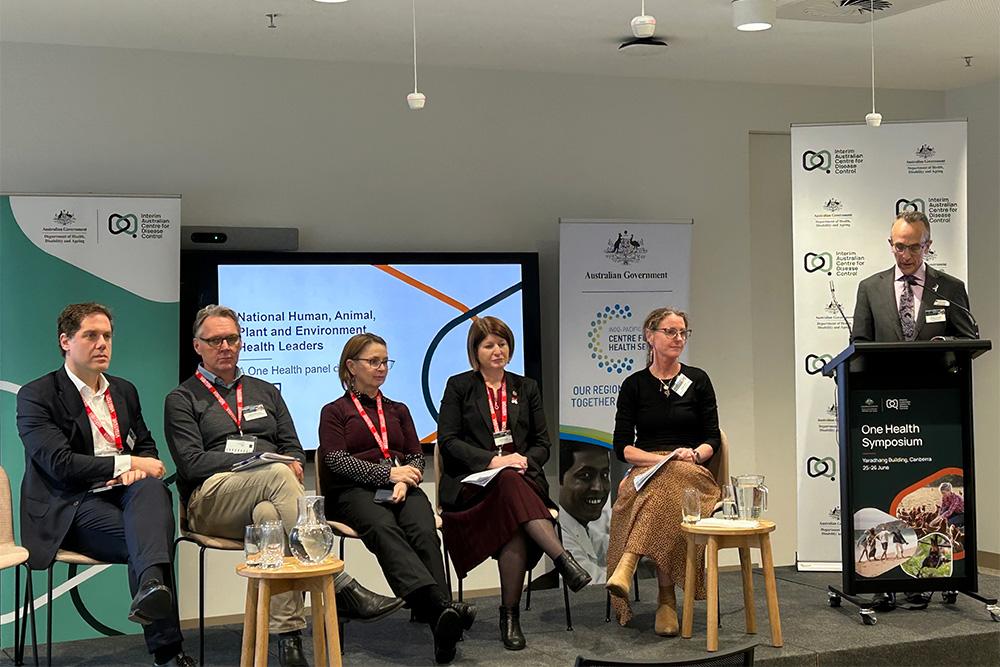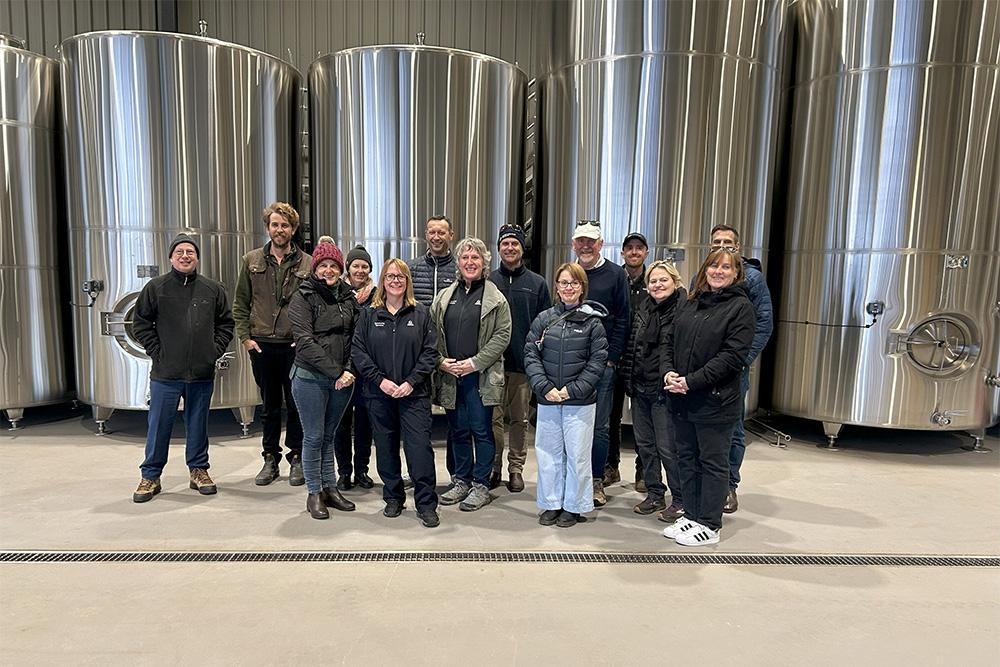Collaboration with other countries both directly and through international forums is an integral component of the work of the Australian Chief Plant Protection Office (ACPPO), as part of the department’s approach to maintaining our international reputation as an engaged, responsive, and problem-solving participant in international affairs, and protecting Australia’s favourable plant health status.
In early October, Dr Gabrielle Vivian-Smith and Dr Sophie Peterson participated as Commission on Phytosanitary Measures (CPM) Bureau and Standards Committee members respectively, of the Focus Group for Safe Aid meeting in Barbados. This Focus Group has members from across the International Plant Protection Convention (IPPC) community and was hosted by the National Plant Protection Organisation of Barbados and supported by Caribbean organisations that deal with emergency response including the Defence Force.
The Focus Group elected a new Chair, Mr Nelson Laville, with Sophie remaining as vice-chair. The group worked hard to consider the comments received from the IPPC community during country consultation, and revised the draft specification for a proposed International Standards on Phytosanitary Measures (ISPM) in the safe provision of aid, which will be considered by the CPM in 2025.
The meeting also reviewed the concept note for a webinar series that will promote the CPM Recommendation on safe provision of aid which will be held next year.
In mid-October, the annual IPPC Strategic Planning Group (SPG) meeting was held in Italy, which discussed several strategic issues related to the future work of the IPPC. This included discussions on the best way to assess, stocktake and revise the Strategic Plan 2020-2030 to support implementation, how and when to commence planning for the next decade, and potential ways to improve the way standards are developed to ensure they are easily understandable and able to be implemented more efficiently.
The group also workshopped a number of topics including an environmental scan, assessing through case studies the draft criteria for emerging pest assessment, and ways to improve international standard setting.
In late September, the Asia and Pacific Plant Protection Commission (APPPC) Session meeting was held in Suzhou, China. Held every two years and consisting of representatives from 25 member countries, the session is an opportunity to exchange information and work on important issues of phytosanitary matters and other aspects of plant protection among the Member Nations in the Asia and the Pacific region. Through the Australian Government Department of Foreign Affairs and Trade funded Timor-Leste Biosecurity Development Program, the Department of Agriculture, Fisheries and Forestry also facilitated attendance of a delegate from Timor-Leste to participate in this forum.
During this Session, APPPC members adopted two regional commodity standards for movement of longan and milled rice. Standing Committee meetings were also held and the session approved the workplan for the next biennium which includes a workshop on e-commerce that Australia and Philippines will co-deliver, along with development of regional standards on clean sea container movement and commodity standards for green coffee beans and fresh durian. Australia looks forward to hosting the next APPPC Session meeting in late 2026.
